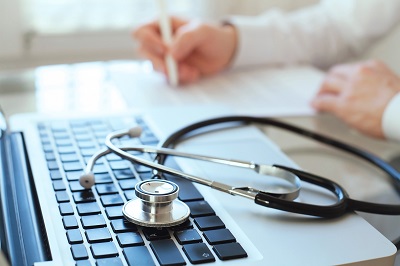A new NHS 111 online service has been put in place to help people get quick and easy-to-understand help and advice about coronavirus, as enquiries about the outbreak continue to surge.
More than 35,000 people used the site in a single day last weekend to get help and advice. If you’re concerned you might have contracted Coronavirus, or been in contact with someone who has, you can access the online resource by clicking here.
 The NHS in England is also ploughing an initial extra £1.7 million into the non-emergency NHS 111 phone line service to offer more clinical advice over the phone. Further funding will also provide 500 additional initial call responders with the capacity to answer around 20,000 more calls every day, and investment will increase if demand continues to rise.
The NHS in England is also ploughing an initial extra £1.7 million into the non-emergency NHS 111 phone line service to offer more clinical advice over the phone. Further funding will also provide 500 additional initial call responders with the capacity to answer around 20,000 more calls every day, and investment will increase if demand continues to rise.
Additional investment will free up clinical call handlers’ time so they are able to prioritise callers with symptoms. Enquiries jumped by a quarter after advice for travellers who have been in Italy changed last week. NHS 111 provided around 20,000 hours of expert clinical advice in January. The 111 service tells callers whether they need a test and helps to arrange one for those who do.
Professor Stephen Powis, NHS national medical director, said: “NHS staff are working round the clock to respond to the coronavirus outbreak. We know that 111 call volumes have been high and people have understandably turned to the service for help, support and advice, which is why we’re ploughing in £1.7 million to increase staff available to field calls.
“The public is also now benefiting from the new NHS 111 online service, which is helping increase capacity and free up clinicians’ time by offering specific help and advice on coronavirus at the touch of a button. I would like to say a personal thank all those NHS staff who are doing an incredible job caring for patients, testing thousands of worried people and taking calls from thousands more.”
The NHS is also rolling out a programme of home diagnostic testing programme across the country. It means that people who think they might have contracted coronavirus and have chosen to self-isolate can be tested in their own home rather than travelling to a testing facility, which could risk spreading the virus.
The public can play their part in slowing the spread of the virus by following public health advice. People should wash their hands, cover their mouth and nose when they cough or sneeze and put used tissues in the bin immediately.
For general information and advice about coronavirus, click here to visit the main NHS website.
• The advice on the NHS 111 online service is tailored to patients living in England. Those in Scotland should call their GP surgery or 111 (NHS 24), while those in Wales should phone 111 and in Northern Ireland phone 0300 200 7885.
